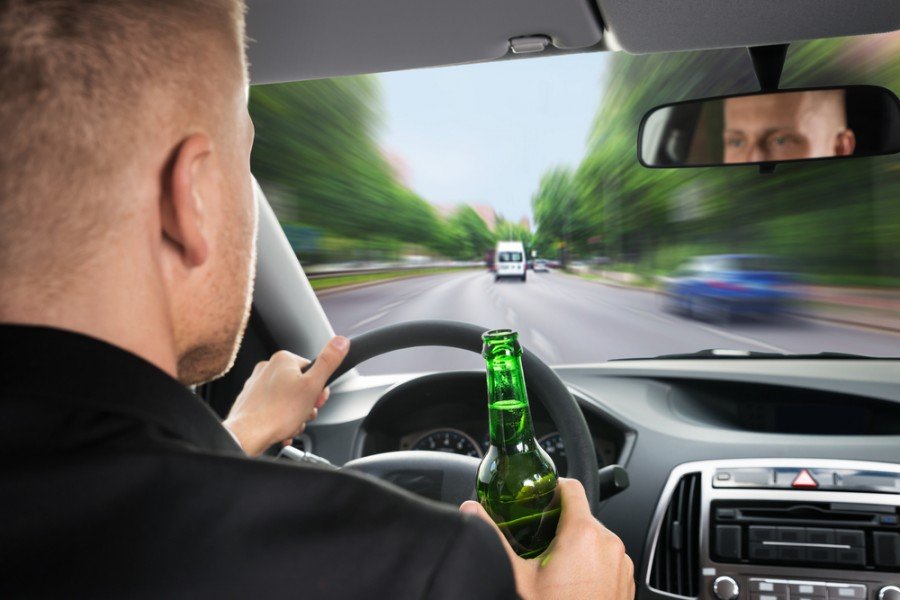Drink Driving

Charged with a drink driving offence?
For most people, their driving licence is critical to their ability to work and for their daily living requirements.
Losing your licence can have disastrous effects.
Engaging HCD Law may ultimately mean the difference between you keeping your job or being able to take your family on your annual holiday.
In the most serious of cases, it may mean you remain out of gaol.
Need a drink driving lawyer?
All NSW courts, fixed fees, dedicated defence, 5-star Google reviews and outstanding results.
Speak with a criminal lawyer (obligation-free).
Drink Driving Information
The courts take drink driving – or Prescribed Concentration of Alcohol (PCA) – offences very seriously.
It’s usually necessary to successfully defend a charge of drink driving if you wish to retain your licence or avoid a term of imprisonment.
Drink driving offences are strict liability offences, meaning the prosecution does not need to prove that you knew you were, or intended to be, over the legal limit when you drove the vehicle.
They need only establish that you were over that limit. Once that is established, a drink driving offence can be very difficult to defend as most defences rely on the identification of weaknesses in the prosecution’s evidence.
Legal limits for blood alcohol concentration (BAC)
– Legal limit
- Learner and provisional drivers: 0.00
- Unrestricted licence holders: 0.05
– Low range offence: BAC of greater than 0.05, but less than 0.08
– Mid range offence: BAC of 0.08 or more but less than 0.15
– High range offence: BAC of 0.15 or more
PCA offences
To do any of the following acts while you have a low, mid or high range BAC is an offence:
– Drive a motor vehicle
– Occupy the driving seat of a motor vehicle and attempt to put the vehicle in motion
– If the person is the holder of an unrestricted licence, occupy the seat next to a learner driver who is driving the vehicle
Drink Driving Penalties
Penalties can include fines, licence disqualification/suspension or gaol, or any combination thereof. The following table outlines the prescribed penalties for various PCA offences:
First PCA offence
| Offence | Max court imposed fine | Max gaol term | Min licence disqualification | Max licence disqualification | Automatic licence disqualification | Immediate licence suspension |
| High range PCA | $3,300 | 18 months | 12 months | Unlimited | 3 years | Yes |
| Mid range PCA | $2,200 | 9 months | 6 months | Unlimited | 12 months | Yes |
| Low range PCA | $1,100 | N/a | 3 months | 6 months | 6 months | No |
Second or subsequent PCA offences
| Offence | Max court imposed fine | Max gaol term | Min licence disqualification | Max licence disqualification | Automatic licence disqualification | Immediate licence suspension |
| High range PCA | $5,500 | 2 years | 2 years | Unlimited | 5 years | Yes |
| Mid range PCA | $3,300 | 12 months | 12 months | Unlimited | 3 years | Yes |
| Low range PCA | $2,200 | N/a | 6 months | Unlimited | 12 months | No |
Penalties for high range PCA offences
A guideline judgment has been issued by the NSW Court of Criminal Appeal in R v Jurisic dealing with sentencing in the case of high range PCA offences. The judgment essentially states the following:
In the case of an ‘ordinary offence’ (defined below);
– For a first offence, a sentence that does not involve a conviction being recorded on the defendant’s criminal record will rarely be appropriate and the usual penalty is a fine and automatic disqualification.
– For a second or subsequent offence, a sentence that does not involve a conviction being recorded or a good behavior bond is rarely appropriate. Where the previous offence or offences are also high range PCA offences a sentence of less than a community service order is generally inappropriate.
In the case of an offence that discloses ‘moral culpability’ (defined below):
– For a first offence, a sentence involving no conviction being recorded or a good behavior bond is rarely appropriate and where there are a number of aggravating factors present to a significant degree, a sentence of less than imprisonment is generally inappropriate.
– For second or subsequent offences, imprisonment of some king is generally appropriate. If there are a number of aggravating factors present to a significant degree, or where the prior offence is a high range PCA, a sentence of less than full-time imprisonment is generally inappropriate.
‘Ordinary offence’
An ‘ordinary’ high range PCA offence occurs where the driver:
– Drove to avoid inconvenience or did not believe they were over the legal limit
– Was discovered to be over the limit by a random breath test (that is, the discovery was not made due to erratic driving noticed by the police or due to the driver being involved in an accident)
– The driver is of prior good character with no, or only a minor, traffic record
– The driver’s licence was suspended on detection of the high range PCA offence
– The driver entered a plea of guilty
– There is little or no risk of the driver re-offending
– The driver will suffer significant inconvenience as the result of losing their licence
‘Moral culpability’
Moral culpability is determined by assessment of the following factors in relation to the offence:
– The degree of intoxication above 0.15
– Whether the driver was driving erratically or aggressively
– Whether the vehicle collided with any other object
– Whether the driver engaged in competitive driving or showing off
– The length of the journey in which others were exposed to risk
– The number of persons actually put at risk by the driving
Offences related to PCA offences
A number of offences are often associated with PCA offences. Drivers are often charged with these offences in addition to a PCA offence if they are uncooperative with police officers.
First offences
| Offence | Max court imposed fine | Max gaol term | Min licence disqualification | Max licence disqualification | Automatic licence disqualification | Immediate licence suspension |
| Refuse breath test | $1,100 | N/a | No specific penalty. See general penalty provisions. | No specific penalty. See general penalty provisions. | No specific penalty. See general penalty provisions. | No |
| Refuse a breath analysis following arrest, or hinder or obstruct taking a blood sample | $3,300 | 18 months | 12 months | Unlimited | 3 years | Yes |
| Refuse to provide oral or blood sample | $3,300 | N/a | 6 months | Unlimited | 3 years | No |
| Failure on demand to provide blood/urine sample, or willfully alter result of same | $3,300 | 18 months | 6 months | Unlimited | 3 years | No |
Second or subsequent offences
| Offence | Max court imposed fine | Max gaol term | Min licence disqualification | Max licence disqualification | Automatic licence disqualification | Immediate licence suspension |
| Refuse breath test | $5,500 | 2 years | 2 years | Unlimited | 5 years | Yes |
| Refuse a breath analysis following arrest, or hinder or obstruct taking a blood sample | $5,500 | 2 years | 2 years | Unlimited | 5 years | Yes |
| Refuse to provide oral or blood sample | $5,500 | 18 months | 12 months | Unlimited | 5 years | No |
| Fail on demand to provide sample of blood/urine, or willfully alter result of same | $5,500 | 2 years | 12 months | Unlimited | 5 years | No |
If you, or anyone you know, requires specific legal advice or representation in court for an offence of this kind, contact us.
The courts take drink driving – or Prescribed Concentration of Alcohol (PCA) – offences very seriously.
It’s usually necessary to successfully defend a charge of drink driving if you wish to retain your licence or avoid a term of imprisonment.
Yes. Drink driving offences are strict liability offences.
This means the prosecution does not need to prove that you knew you were, or intended to be, over the legal limit when you drove the vehicle.
They need only establish that you were over that limit.
Once that is established, a drink driving offence can be very difficult to defend.
This is because most defences rely on the identification of weaknesses in the prosecution’s evidence.
Legal limits for blood alcohol concentration (BAC)
– Legal limit
- Learner and provisional drivers: 0.00
- Unrestricted licence holders: 0.05
– Low range offence: BAC of greater than 0.05, but less than 0.08
– Mid range offence: BAC of 0.08 or more but less than 0.15
– High range offence: BAC of 0.15 or more
Drink Driving offences (PCA Offences)
To do any of the following acts while you have a low, mid or high range BAC is an offence:
– Drive a motor vehicle
– Occupy the driving seat of a motor vehicle and attempt to put the vehicle in motion
– If the person is the holder of an unrestricted licence, occupy the seat next to a learner driver who is driving the vehicle
Drink Driving Penalties
Penalties can include fines, licence disqualification/suspension or gaol, or any combination thereof. The following table outlines the prescribed penalties for various PCA offences:
First PCA offence
| Offence | Max court imposed fine | Max gaol term | Min licence disqualification | Max licence disqualification | Automatic licence disqualification | Immediate licence suspension |
| High range PCA | $3,300 | 18 months | 12 months | Unlimited | 3 years | Yes |
| Mid range PCA | $2,200 | 9 months | 6 months | Unlimited | 12 months | Yes |
| Low range PCA | $1,100 | N/a | 3 months | 6 months | 6 months | No |
Second or subsequent PCA offences
| Offence | Max court imposed fine | Max gaol term | Min licence disqualification | Max licence disqualification | Automatic licence disqualification | Immediate licence suspension |
| High range PCA | $5,500 | 2 years | 2 years | Unlimited | 5 years | Yes |
| Mid range PCA | $3,300 | 12 months | 12 months | Unlimited | 3 years | Yes |
| Low range PCA | $2,200 | N/a | 6 months | Unlimited | 12 months | No |
Penalties for high range PCA offences
A guideline judgment has been issued by the NSW Court of Criminal Appeal in R v Jurisic dealing with sentencing in the case of high range PCA offences. The judgment essentially states the following:
In the case of an ‘ordinary offence’ (defined below);
– For a first offence, a sentence that does not involve a conviction being recorded on the defendant’s criminal record will rarely be appropriate and the usual penalty is a fine and automatic disqualification.
– For a second or subsequent offence, a sentence that does not involve a conviction being recorded or a good behavior bond is rarely appropriate. Where the previous offence or offences are also high range PCA offences a sentence of less than a community service order is generally inappropriate.
In the case of an offence that discloses ‘moral culpability’ (defined below):
– For a first offence, a sentence involving no conviction being recorded or a good behavior bond is rarely appropriate and where there are a number of aggravating factors present to a significant degree, a sentence of less than imprisonment is generally inappropriate.
– For second or subsequent offences, imprisonment of some king is generally appropriate. If there are a number of aggravating factors present to a significant degree, or where the prior offence is a high range PCA, a sentence of less than full-time imprisonment is generally inappropriate.
‘Ordinary offence’
An ‘ordinary’ high range PCA offence occurs where the driver:
– Drove to avoid inconvenience or did not believe they were over the legal limit
– Was discovered to be over the limit by a random breath test (that is, the discovery was not made due to erratic driving noticed by the police or due to the driver being involved in an accident)
– The driver is of prior good character with no, or only a minor, traffic record
– The driver’s licence was suspended on detection of the high range PCA offence
– The driver entered a plea of guilty
– There is little or no risk of the driver re-offending
– The driver will suffer significant inconvenience as the result of losing their licence
‘Moral culpability’
Moral culpability is determined by assessment of the following factors in relation to the offence:
– The degree of intoxication above 0.15
– Whether the driver was driving erratically or aggressively
– Whether the vehicle collided with any other object
– Whether the driver engaged in competitive driving or showing off
– The length of the journey in which others were exposed to risk
– The number of persons actually put at risk by the driving
Offences related to PCA offences
A number of offences are often associated with PCA offences. Drivers are often charged with these offences in addition to a PCA offence if they are uncooperative with police officers.
First offences
| Offence | Max court imposed fine | Max gaol term | Min licence disqualification | Max licence disqualification | Automatic licence disqualification | Immediate licence suspension |
| Refuse breath test | $1,100 | N/a | No specific penalty. See general penalty provisions. | No specific penalty. See general penalty provisions. | No specific penalty. See general penalty provisions. | No |
| Refuse a breath analysis following arrest, or hinder or obstruct taking a blood sample | $3,300 | 18 months | 12 months | Unlimited | 3 years | Yes |
| Refuse to provide oral or blood sample | $3,300 | N/a | 6 months | Unlimited | 3 years | No |
| Failure on demand to provide blood/urine sample, or willfully alter result of same | $3,300 | 18 months | 6 months | Unlimited | 3 years | No |
Second or subsequent offences
| Offence | Max court imposed fine | Max gaol term | Min licence disqualification | Max licence disqualification | Automatic licence disqualification | Immediate licence suspension |
| Refuse breath test | $5,500 | 2 years | 2 years | Unlimited | 5 years | Yes |
| Refuse a breath analysis following arrest, or hinder or obstruct taking a blood sample | $5,500 | 2 years | 2 years | Unlimited | 5 years | Yes |
| Refuse to provide oral or blood sample | $5,500 | 18 months | 12 months | Unlimited | 5 years | No |
| Fail on demand to provide sample of blood/urine, or wilfully alter result of same | $5,500 | 2 years | 12 months | Unlimited | 5 years | No |
If you, or anyone you know, requires specific legal advice or representation in court for an offence of this kind, contact us.
Drink driving terms
In a driving matter, the most common terms relating to penalties are;
Minimum period of disqualification – The minimum period for which your licence can be disqualified.
Maximum period of disqualification: This is the maximum period that a Court can cancel your licence.
Automatic period of disqualification – where there is no discretion on the disqualification period.
Alcohol-Related Driving Charges
These charges are found in the Road Transport (Safety and Traffic Management) Act 1999 (NSW).
Special Range DUI
Unlike other drink driving offences, the offence may be where the person is driving a motor vehicle anywhere.
It is the only driving offence relating to alcohol where the person does not need to be driving on a road or road-related area.
A ‘special category driver’ must not drive the vehicle, or occupy the driving seat of a vehicle, and attempt to put the vehicle in motion whilst having alcohol in their blood.
Special Range concentration of alcohol of more than 0.02 grammes or more of alcohol in 100ml of blood.
Low Range DUI
Low range concentration of alcohol is 0.05 to 0.08 grammes of alcohol in 100ml of blood.
If convicted, the minimum period of disqualification is 3 months, maximum is 6 months.
Mid Range DUI
Mid range concentration of alcohol is 0.08 to 01.5 grammes of alcohol in 100ml of blood.
If convicted, the minimum period of disqualification is 6 months, maximum is 12mths.
High Range DUI
High range concentration of alcohol is greater than 1.5 grammes of alcohol in 100ml of blood.
If convicted, the minimum period of disqualification is 12 months, maximum is 3 years.
Drink Driving Penalties
Regardless of the seriousness of a drink driving offence, it is open to the Court not to impose any penalty.
The court may choose to find the offence proven but not impose a penalty.
In other words, there is no disqualification period imposed and you are able to keep your licence.
The Court may also impose an alternate verdict for a lesser offence if it is satisfied that the person had a lesser prescribed concentration of alcohol for which they have been charged.
For example, this allows the Court to find the person who has been charged with a high range offence be convicted and penalised like someone who had been charged with a mid-range offence.
More Services







